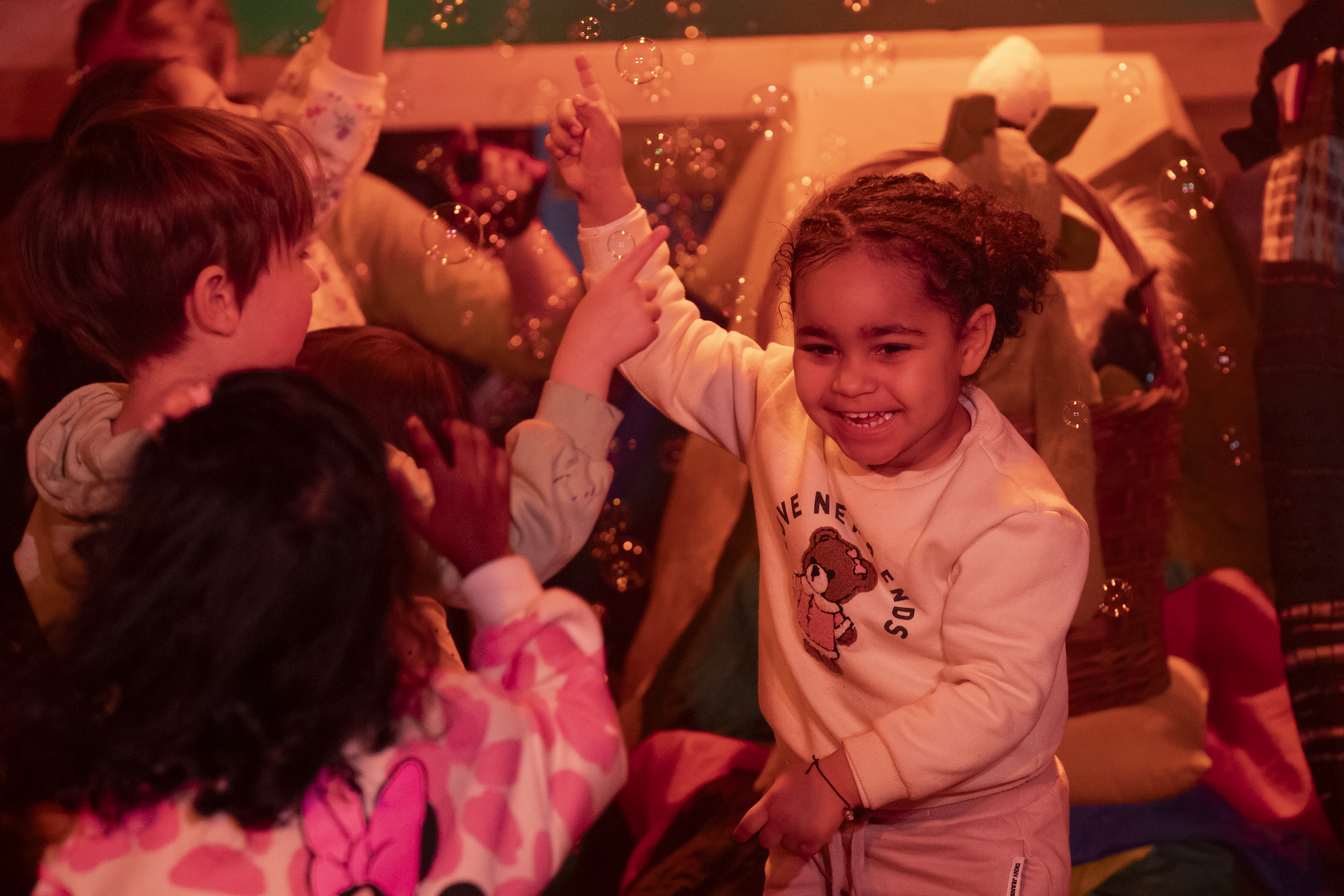“What was the first theatre performance you saw?” For lots of people this question smacks of privilege. It assumes access to funds to buy a ticket, ability and confidence to access a theatre space, transportation and associated cash to get to that space, not to mention the presumption you’ve been to a performance more than once.
Questions like these are common in the arts, but if you don’t have an answer – because you’ve never experienced live theatre – the question can create separation and remind people of their lack of cultural capital. Hannah Farley-Hills and I believe theatre can build and bond communities, so together we set about unpicking the barriers to live theatre that some of the most excluded children face by establishing Toucan Theatre Limited.
Toucan Theatre creates first experiences of theatre for children who are most excluded from the arts through socioeconomic, physical and geographic barriers – this often means theatre for children and young adults with complex disabilities. We create multi-sensory theatre shows, full of light and projections, touch sensations, sounds, smells, and sometimes taste and flavours by co-creating within the complex disability community.
- Too many children with special educational needs are living in poverty. It’s a waste of public funds
- ‘If I didn’t do graffiti I’d be doing way worse crimes’: Banksy interviews Tox, London’s most prolific vandal
- It’s 15 years since the UK government promised to end child poverty. Time to revive that ambition
We undertake residencies in SEND schools and children’s hospices to collaborate with young people to explore themes and concepts and to test ideas and gadgets to destruction. We work using communication tools Makaton and Widgets and over time we get to know the likes and dislikes of non-verbal children. If their laughter stops, we pursue different ideas. We don’t have an agenda, we have fun, and from this joy a story, and ultimately a multisensory theatre show, emerges.
To make The Noisy Dinosaur, writer Joe Rizzo-Naudi joined and co-led our team. Joe is partially blind and encouraged us to challenge the visual narrative that’s often dominant in children’s theatre. Our team is visibly and invisibly diverse, I mention this not to highlight division but because disability is intersectional and can affect anyone. By reflecting our audiences and young co-creators in the people that make and lead the work, the show is rooted in its community with the hope of finding common ground with everyone.

Sharing common ground is important to us, and a simple and effective approach to this is through the use of everyday objects in our work. The gadgets and gizmos and sensations in our shows are always created from everyday items. We purposefully use soft toys because we want children and their grown-ups to pick up a toy and make it talk and fly and fart and roar.









